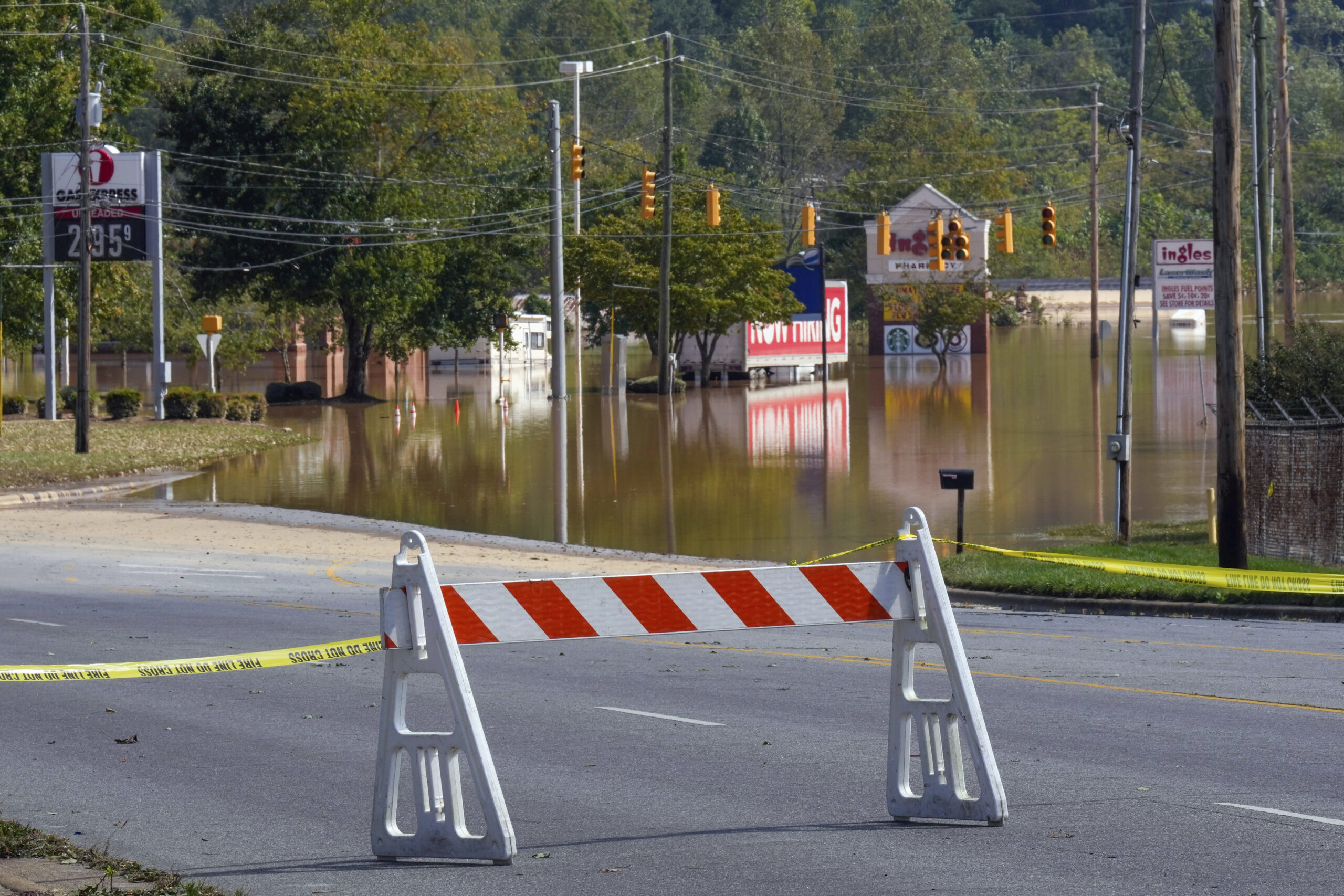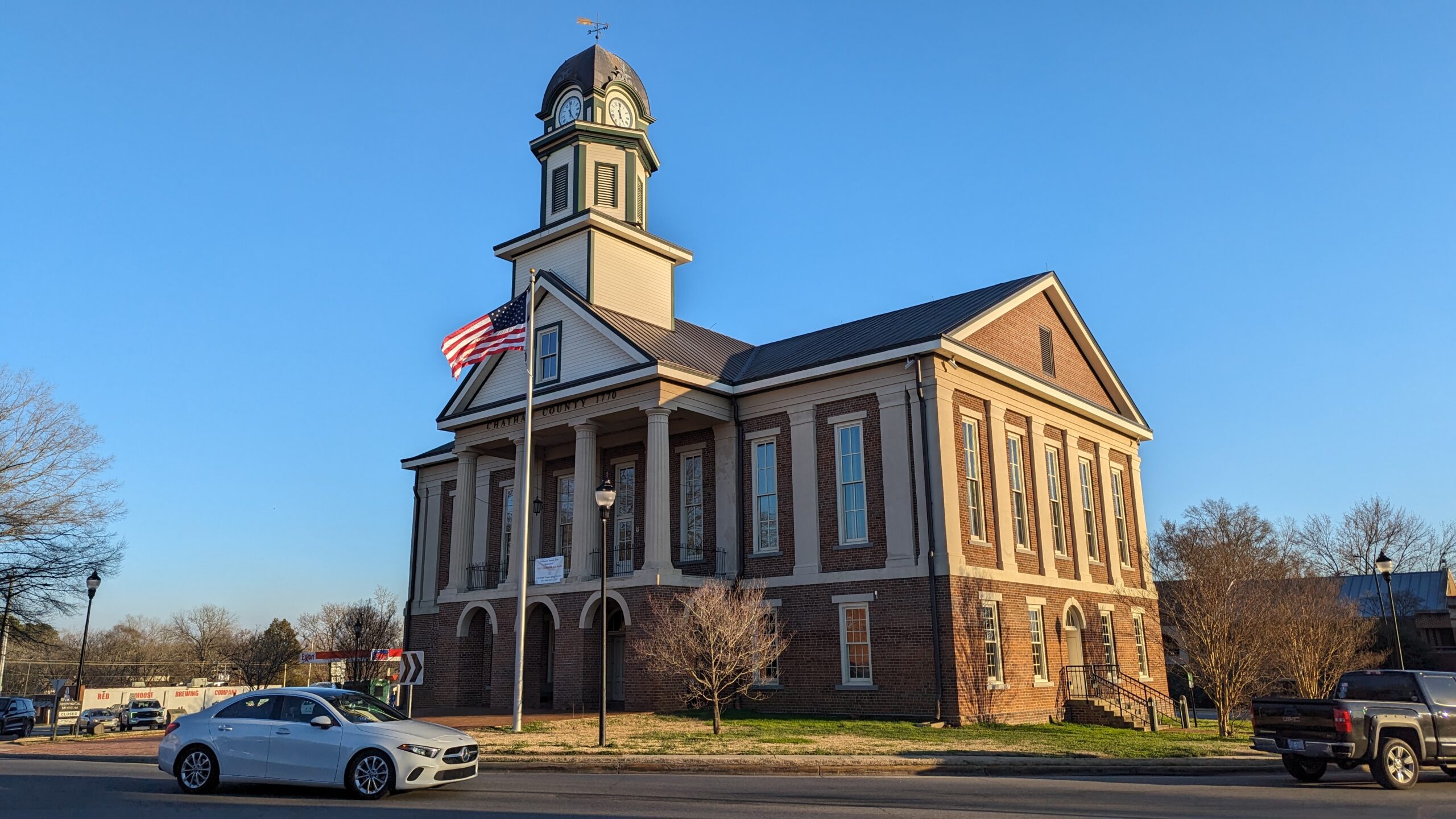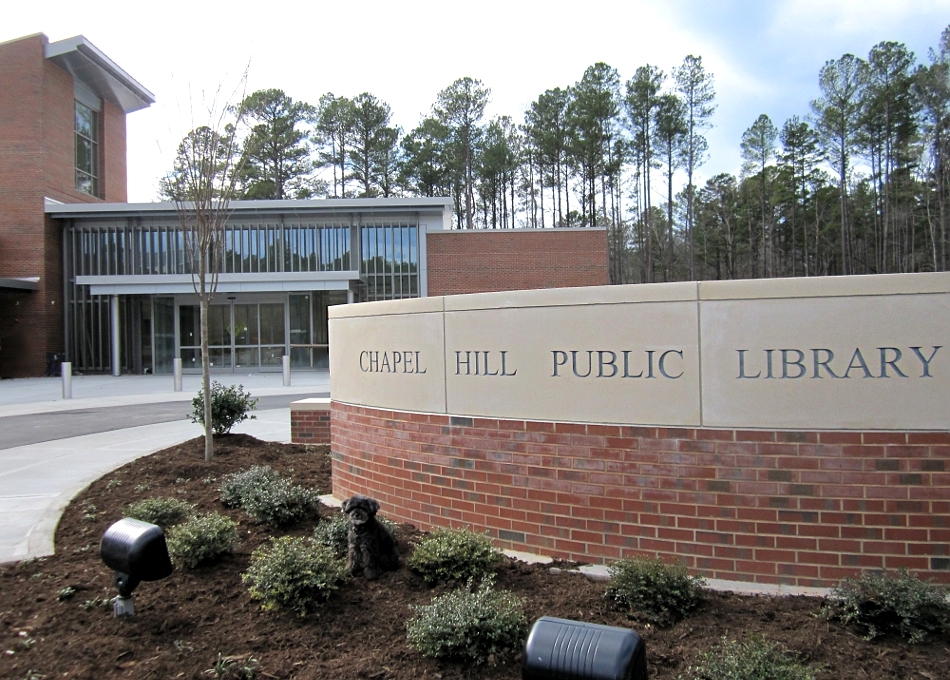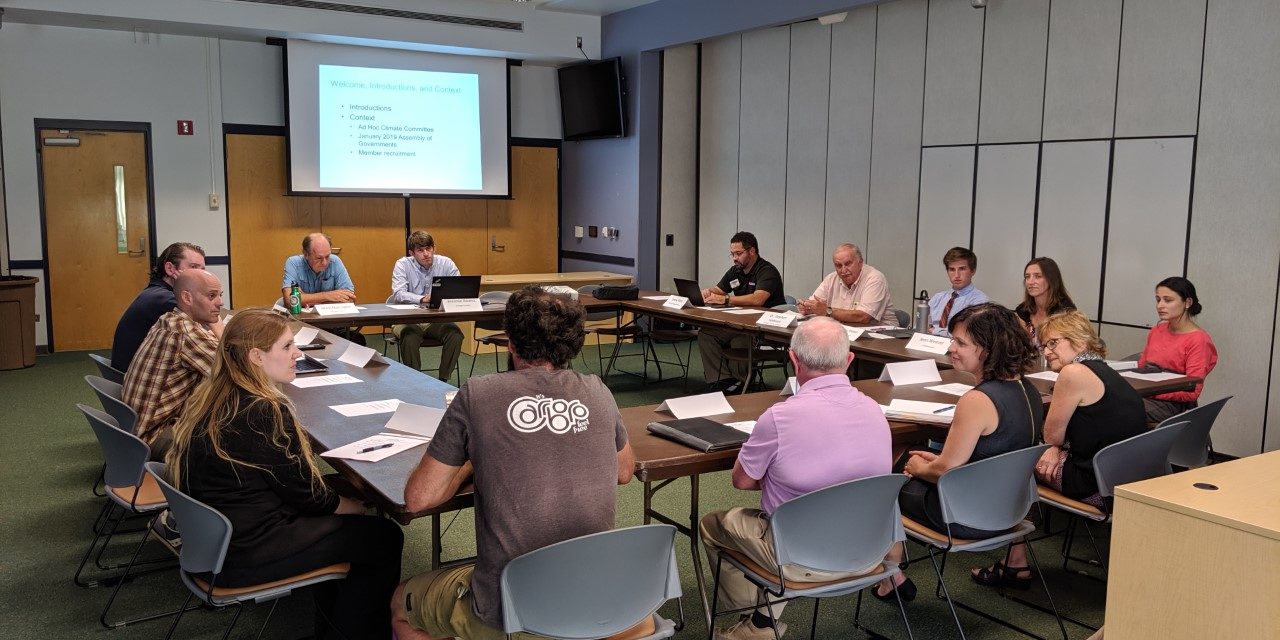The topic of addressing climate change echoed across the world this past weekend. Many countries and cities saw residents participate in a global climate strike. The United Nations held a climate action summit in New York, drawing the most attention when 16-year-old Swedish climate activist Greta Thunberg addressed the gathered diplomats.
On Tuesday in Orange County, it was the Climate Control Council’s turn to address the topic.
The group met for the first time this week, beginning its search together for ways the county can set examples for residents and other Americans to fight and prepare for climate change on a local level.
Members of the 20-person council include representatives from the Orange County, Chapel Hill, Carrboro, and Hillsborough governments, as well as leaders of local NAACP chapters, local school systems and residents. The hope is to swell to 30 members before long, with representatives from UNC and Durham Tech being offered spots on the council.
Joshua Van Mater is the student representative for Orange County schools and a senior at Orange High School. As the youngest member of the council, he said he hopes to bring perspective of community members who are either first-time voters or unable to vote. Van Mater also said his goal is to contribute ideas on climate action that are attractive to students and have direct goals. He referenced the recent campaign against single-use plastic straws as a successful way to engage younger community members.
“That’s one small change; it’s a drop in the bucket in terms of your total plastic emissions,” said Van Mater. “But it’s something that kids can grab on to and say, ‘Here’s a simple thing I can do; Here’s a simple impact it has.’ That’s great because it allows the message to get out there and more people to ride the wave of that campaign.”
Finding a balance between new action and analysis of each organization’s current methods to be environmentally friendly was a main topic of the council’s initial meeting. The members also discussed the importance of distinguishing mitigation and adaptation tactics, and which type to focus on most. Mitigation action reduces contribution to climate change, while adaptation action attempts to minimize the impact of climate change.
The consensus of the group was to largely focus on mitigation efforts up front while also using analysis to find shortcomings in any current local climate action. Orange County commissioner and chair of the Climate Control Council Mark Marcoplos spoke to this.
“One of the key points made was [recent models indicate] we only have eight to 12 years to really have an impact on [decreasing] our greenhouse gas output and our carbon footprint,” Marcoplos said. “That argues for mitigation.”
Van Mater agreed with this tactic, saying the group should be searching for ways to lead the community toward being more conscious of their contributions to the environment and addressing climate change in everyday actions.
“There needs to be a voluntary movement toward [fighting] climate change,” Van Mater said. “It needs to happen in the schools; it needs to happen in the home; it needs to happen in the community. But it’s hard for that to happen when people aren’t educated on the issues and what they can do about it.”
The Orange County Climate Control Council’s next meeting will be held in October.
Related Stories
‹

Students Call for Action During WalkoutWednesday was an emotional day for students in Chapel Hill, Carrboro, Hillsborough and across the country. Students at East Chapel Hill High School began their morning in their restorative circles – a monthly discussion on an important topic where students drive the conversation. Other recent topics have focused on sexual harassment and other issues. Wednesday’s […]

Here Are Ways You Can Donate to Local Drives for Hurricane Helene ReliefAfter Hurricane Helene devastated western North Carolina last week, numerous local organizations, businesses and schools have set up donation drives to help those affected. Below is a list of drives around our area, in alphabetical order by the group: All About Insurance shifted its regular Sock-Tober clothing drive to exclusively support Hurricane Helene relief efforts. […]

Orange County Approves More Than $500,000 for Community Climate Action Grant ProgramEarlier in December, the Orange County Board of Commissioners approved more than $500,000 in various grants through the county’s Community Climate Action Program. Eight programs around the county will receive funding. Three different organizations will use the money to install rooftop solar panels: Binkley Baptist Church in Chapel Hill, the Hillsborough United Church of Christ […]

High School Football Round-Up: Week 5Every week during the season, Chapelboro will post the scores of local high school football games. Here are the scores from Week 5! Results from Week 4 can be found here. Chapel Hill (4-0): Idle Up next: vs. East Chapel Hill Cedar Ridge (1-3): Lost to Person County, 76-8 Up next: vs. Northwood East […]

Orange County Climate Council Prepares To Hold Its Initial MeetingThe first meeting for the Orange County Climate Council is being held on Tuesday in Chapel Hill. The council is a joint effort between local governments and groups meant to address ways to combat climate change at the local level. Orange County Commissioner Mark Marcoplos spoke recently with WCHL’s Aaron Keck. He said many community […]
![]()
Winter Weather Causing Delays TuesdayWintry precipitation fell throughout the day on Monday, causing local schools and government offices to close early. A Winter Weather Advisory remains in effect until 10 a.m. Tuesday due to the threat of black ice, and that has caused several delays. Alamance – Burlington Schools will operate on a three-hour delay Tuesday, March 13. Chapel […]
![]()
Orange County Considering Resolution Supporting Paris Climate AgreementWhile countries around the world are still looking at how to move forward after President Donald Trump has announced the United States will remove itself from the Paris Climate Agreement, local officials are continuing to support efforts to mitigate climate change. Orange County Commissioner Penny Rich has submitted a resolution in an email to other […]

Local Government Meetings: February 9-13, 2025This week in local government: residents in Chatham County push back against Flock license-plate cameras and AI data centers.

Orange County Communities to Observe Martin Luther King Day Jan. 19. Here's How it Affects Services.The observation of Martin Luther King, Jr. Day on Monday, Jan. 19 will affect local government services around the Orange County community. Here’s what residents can expect this year: Town of Chapel Hill Most town offices will be closed Monday. Residential trash normally collected Monday will be collected Wednesday, Jan. 21. Curbside recycling collection will […]

Orange County Communities to Interrupt Services for December Holidays (2025)Communities around Orange County will interrupt their normal service schedules during the upcoming winter holidays. Here’s what customers can expect: Town of Chapel Hill Town of Chapel Hill government offices will be closed from Wednesday, Dec. 24 through Friday, Dec. 26. Residential trash collection will not be affected. Yard trimmings will not be collected on […]
›










